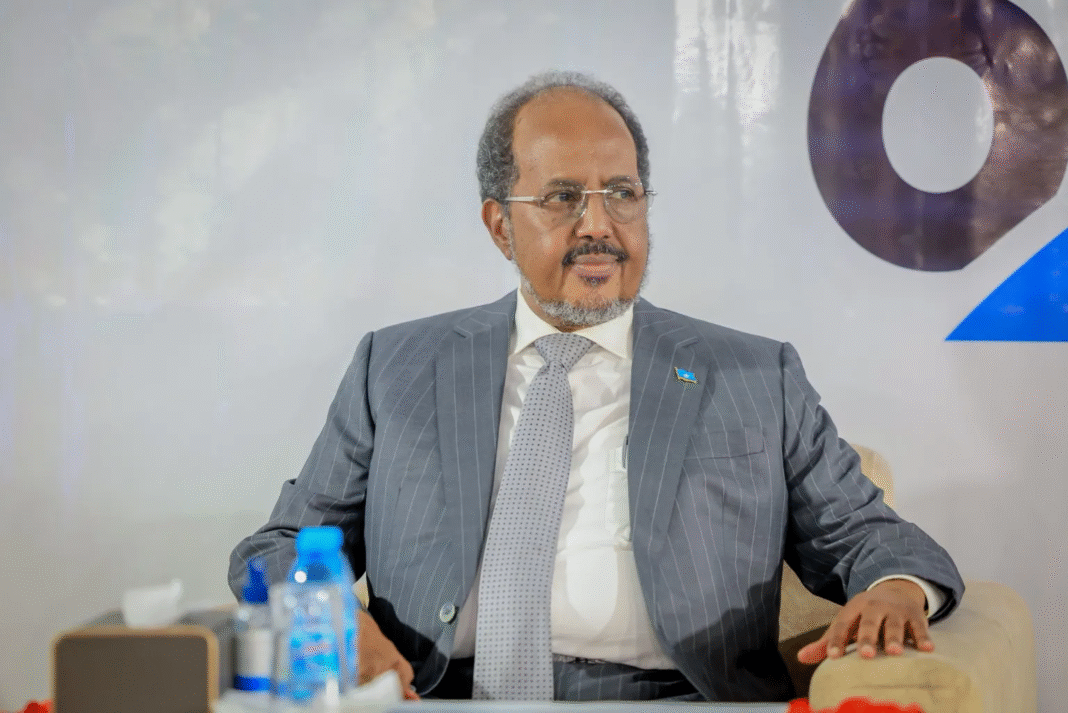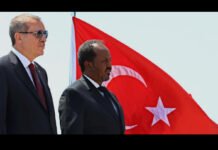By Horn Africa News
Mogadishu – President Hassan Sheikh Mohamud’s administration is grappling with a complex of challenges that continue to hinder Somalia’s path toward peace, stability, and development. From relentless insurgency to political fragmentation and humanitarian crises, the Somali leader’s tenure is marked by mounting obstacles.
One of the most pressing issues remains the persistent threat posed by the militant group Al-Shabaab. Despite ongoing military operations, the group continues to control and destabilize vast areas of the country, making it difficult for the government to implement national policies, maintain order, or attract crucial international investment and aid.
Compounding the security crisis is the fragile relationship between Somalia’s federal government and its regional states. Political divisions and disputes over authority and resource sharing have stalled effective governance and national cohesion. Efforts to push through political reforms are often hampered by this lack of unity.
Corruption and institutional weakness further undermine President Mohamud’s ability to enact reforms and build trust in government. Somalia’s economy remains severely strained, with high poverty levels, limited infrastructure, and scarce public resources all contributing to the challenges of nation-building.
Another major hurdle is achieving reconciliation and unity among Somalia’s diverse clans and factions. Deep-rooted clan dynamics continue to impede efforts to build a cohesive national identity. Attempts to foster dialogue and trust among communities and regional leaders often face resistance and setbacks.
The humanitarian crisis in Somalia adds another layer of urgency. Prolonged drought, mass displacement, and widespread food insecurity have created a dire situation for millions. However, the government’s capacity to respond remains limited due to a lack of infrastructure and funding.
International cooperation remains vital, but Somalia’s complex relations with neighboring countries and its own diaspora can influence the level of external support available to the government.
Despite these formidable challenges, President Hassan Sheikh Mohamud has made notable efforts to address them, including launching military offensives against insurgents and advocating for political and institutional reform. Still, progress remains slow, and the path to stability is fraught with difficulty.
As Somalia stands at a critical juncture, the success of President Mohamud’s leadership will depend on his administration’s ability to navigate these challenges while fostering unity, strengthening institutions, and securing meaningful international support.




